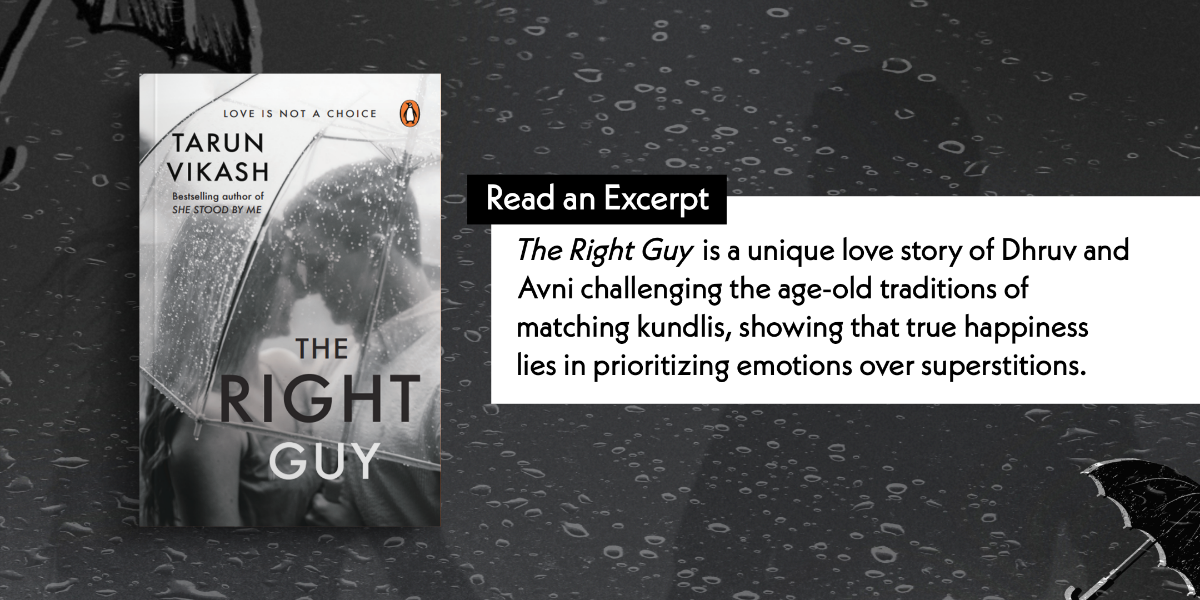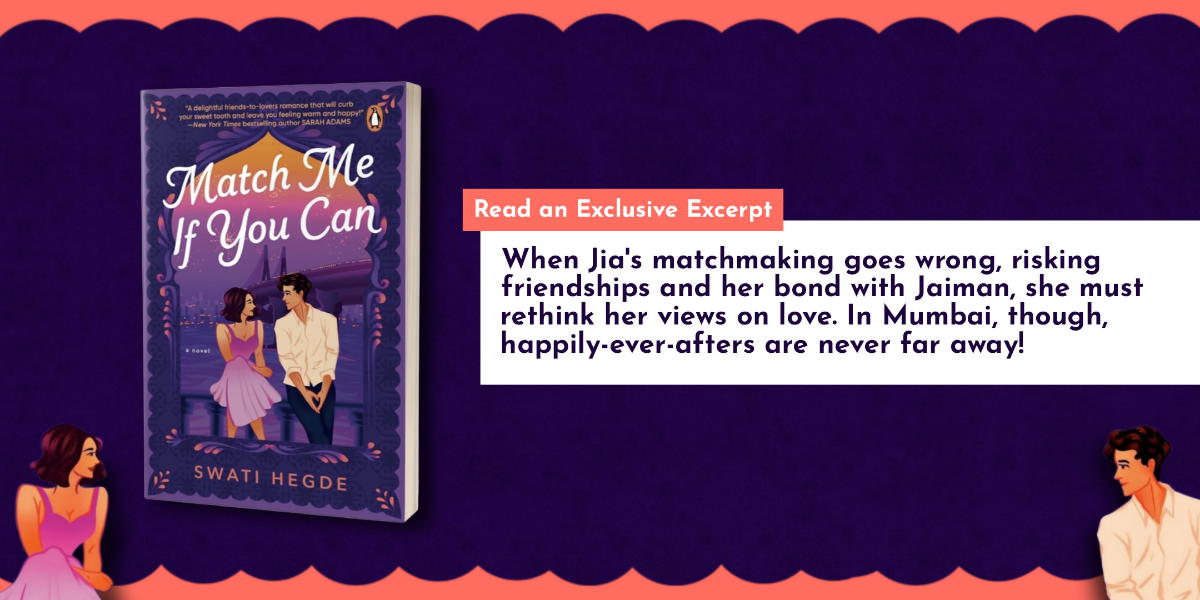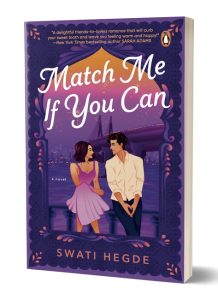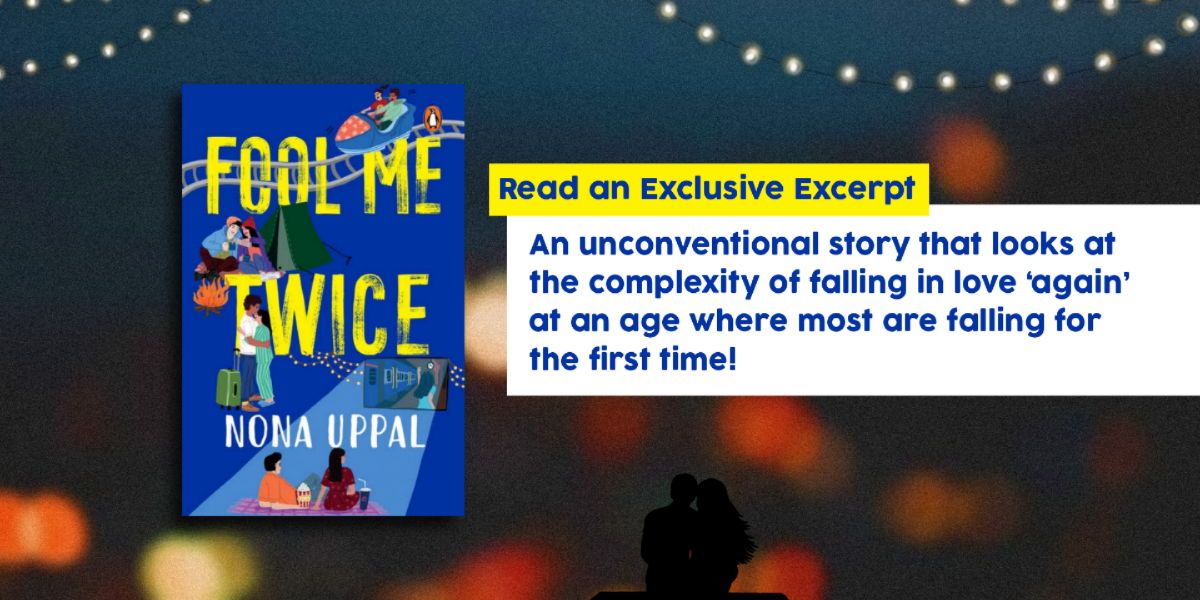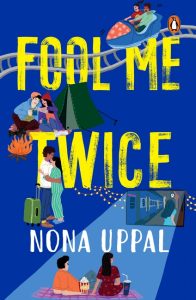What would you do if fate kept bringing you back to the one who got away? In The Right Guy, author Tarun Vikash spins a heartfelt tale of missed opportunities, unexpected reunions, and the courage to finally say what’s in your heart.
Read this exclusive excerpt where Dhruv and Avni face the harsh realities of love, family, and the courage it takes to hold on to the one who matters most.
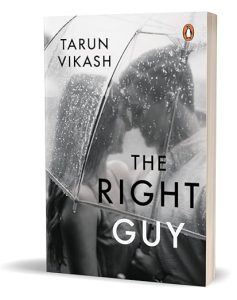
***
A Week Later
I reached Chennai.
Avni’s mom had asked me to meet her urgently. I was really nervous. Avni had not told me anything. She just said that something had happened at Bala’s wedding because of which her mom and dad were really upset. I’m already scared of Avni’s dad. I reached Avni’s home and Uncle opened the door. He looked at me angrily and went inside to his room. Aunty immediately came to the door and welcomed me in.
‘Dhruv, I think you are aware of what happened at Bala’s wedding,’ Avni’s mom said.
‘I don’t understand, Aunty. What happened?’
‘Look, we know Avni likes you and even you like her. But it will be good if you stopped meeting her from today onwards.’
‘Amma, please don’t talk to him like that,’ Avni interrupted.
Avni, let me talk, please.’
‘Aunty, did I make any mistake? I am sorry if I have hurt anyone,’ I said.
‘It’s not about you, Dhruv. It’s about your family.’
‘What happened, Aunty? Did anyone call and say something to you or Uncle?’
‘What was the point of getting Avni’s kundli matched with yours at Bala’s wedding, when I haven’t given any approval of your marriage with her?’
‘Huh? When did this happen?’
‘Ask your sister. She did all this,’ Aunty said. I looked at Avni. She nodded.
‘Your sister shamed my daughter in front of all the guests there.’
‘But what happened? Avni, at least you tell me,’ I asked.
‘Avni is manglik. And, till date, only we knew that. But now, due to your sister, everybody knows. In fact, your sister and Bala’s wife even laughed at Avni.’
‘Shreya Didi didn’t laugh, Amma,’ Avni interrupted.
‘Do you see my daughter? She’s still defending your sister. But what did your sister do? She made a joke about my daughter in front of so many people. Do you know that the pandit said, in front of everyone, that my daughter is not a good match for you? How do you expect me to feel, Dhruv?’ said Aunty.
‘Aunty, I had no idea about all this. I am so sorry, I’ll speak to—’
‘Now, all my relatives know about this. This is a gross invasion of our privacy, Dhruv. I didn’t expect this of your family. Does your mom know about this? Do you know how much we are being mocked right now? In our family, everyone has got to know that Avni is a manglik. Now, who will marry her?’ said Aunty.
I wanted to say that I would marry her but it was not the right thing to say right now. I was really scared. Why would Didi do something so stupid? Damn.
‘Does your mom know about this kundli match?’ Aunty asked me.
‘Aunty, I myself got to know about this today. How would Maa know?’
‘Check with your sister. She must have already informed your mom as she did to the rest of the world.’
‘I am really sorry, Aunty. Didi would not do anything to hurt Avni. This was all a mistake.’
‘I am not saying anything to you, Dhruv. Just don’t meet Avni from now on.’ Avni held her mom’s hand tightly.
‘We can’t get our daughter married to you. Not today, not ever,’ Aunty said.
‘Aunty, I apologize again on behalf of Didi. Everything will be all right. My mom doesn’t care about all this. She already loves Avni so much.’
‘That is why your sister made a joke of my daughter. Is it?’
‘Aunty, to be frank, everyone in our friends circle knows that Avni and I want to marry each other. Maybe that is why Didi might have asked the pandit to match our kundli.’
‘And what about the mockery we are getting from everyone? Do you know what people are saying about my daughter now? We can’t even go to their houses now.’
I did not know what to say. I shouldn’t have come alone. I shouldn’t have even come here. Why did you do this, Didi?
‘I am sorry, Aunty,’ I said, folding my hands.
‘He is still here?’ Uncle entered and spoke to Aunty while looking at me.
‘Appa, please,’ Avni said.
‘Hi Uncle,’ I said, as I stood up. Uncle did not say a word.
‘Tell him not to meet my daughter from now onwards,’ Uncle said.
***
Get your copy of The Right Guy by Tarun Vikash on Amazon or wherever books are sold.







